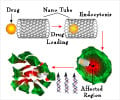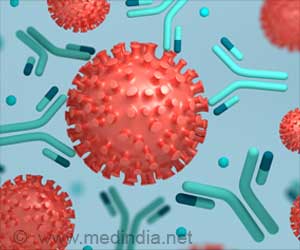Goodbye chemo, hello precision medicine! Targeted therapy attacks cancer cells based on their unique mutations more effective, fewer side effects.
- Cancer is a leading cause of death worldwide, and its treatment is one of the most complex challenges
- People with inherited mutations are at a higher risk of developing certain cancers, such as breast cancer
- Genetic testing helps in the treatment of existing cancer and plays a key role in prevention
Inherited cancer risk is REAL. A single genetic test can tell you if you're at risk for breast, ovarian, or colon cancer. #cancerawareness #genetics #medindia’
Genetic Mutations in Cancer
Genetic mutations play an important role in the development of cancer. A mutation is a DNA sequence change affecting normal cellular function. There are two primary types of mutations that contribute to cancer:- Mutations during a person’s lifetime due to various environmental and lifestyle factors are called sporadic mutations. They are not inherited.
- Mutations are inherited from a person’s parents and are present in every individual cell. This is known as hereditary mutations.
The Genetics of Cancer
Go to source).
Genetic Testing in Cancer Diagnosis
Genetic testing plays a pivotal role in identifying genetic abnormalities in cancer cells. The process typically involves isolating DNA and RNA from cancer tissue, followed by amplification and sequencing to detect mutations. Genetic testing provides invaluable information (2✔ ✔Trusted SourceGenetic testing
Go to source).
It is a complex procedure and requires specialized technology and expertise taking two to three weeks or longer. The results may fail if the DNA quality is poor, especially in older or degraded tissues.
Through genetic testing, specific mutations present in a patient’s cancer can help guide treatment decisions and drug development.
Targeted Therapy in Cancer Treatment
Precision oncology aims to treat the right patient with the right treatment at the right time based on the patient's genetic makeup. In precision oncology, treatment is personalized to the individual based on their unique genetic profile. For instance, when a genetic mutation is detected, targeted drugs can be prescribed to inhibit the growth of cancer cells harboring that specific mutation.Targeted therapy successfully treated cancers such as lung cancer, colon cancer, and breast cancer, where therapies target specific genetic abnormalities like EGFR mutations in lung cancer or HER2 overexpression in breast cancer.
The primary benefit of targeted therapies is their ability to improve treatment outcomes while minimizing side effects.
Technological advancements are making genetic testing more accessible, and new liquid biopsy methods, which detect mutations in blood rather than tissue samples.
Role of Genetic Testing in Cancer Prophylaxis
Genetic testing helps in the treatment of existing cancer and plays a key role in prevention. Prophylactic measures can be recommended for individuals who carry inherited mutations linked to cancer.Prophylactic measures include preventive surgeries, such as mastectomy (removal of the breasts) or oophorectomy (removal of the ovaries), for individuals at high risk of developing certain cancers (3✔ ✔Trusted Source
Genetic Testing for Successful Cancer Treatment
Go to source).
Additionally, genetic testing in individuals with a strong family history of cancer allows for stronger screening protocols and earlier detection.
Precision oncology represents a significant advancement in cancer treatment, focusing on personalized care based on the genetic makeup of cancer cells. While challenges such as drug resistance and limited accessibility remain, the potential for precision oncology to transform cancer treatment is immense.
References:
- The Genetics of Cancer - (https://www.cancer.gov/about-cancer/causes-prevention/genetics)
- Genetic testing - (https://www.mayoclinic.org/tests-procedures/genetic-testing/about/pac-20384827)
- Genetic Testing for Successful Cancer Treatment - (https://pmc.ncbi.nlm.nih.gov/articles/PMC10765765/)
Source-Medindia
















